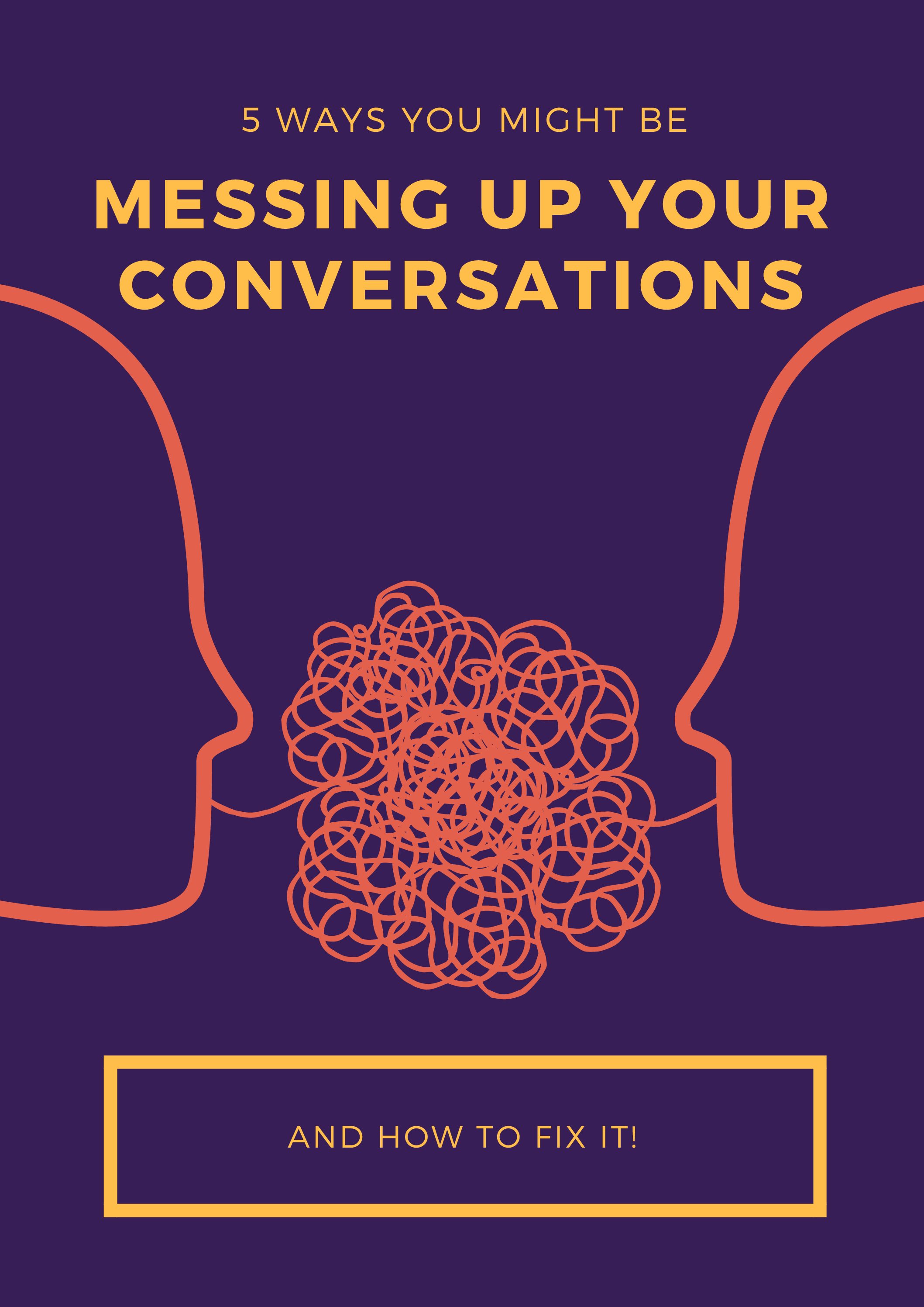Continuing in our conversation about conversation, I’ll call this a “meta-conversation.” It’s the act of talking about how we talk to one another. It may sound unnecessary, but when you think about it, what could be more important than growing in the art of conversation? Conversations have consequences. Conversations create reality.
The absence of conversation also has consequences. If neighborhoods and communities don’t talk, the culture at large will do our talking for us. When you watch TV a conversation is being had, only the conversation is one sided: you are being talked AT not talked WITH. You are a passive recipient of the conversation– yet the conversation is affecting you nonetheless.
In my last post, I talked about whether you were predisposed toward bravery in your conversations. Today, I want to explore how to think about each conversation you’ve just had. Think about your last conversation. How effective was it? Did you really stayed engaged and “brave” in this conversation?
Here is a little handy acronym to help you remember that after each conversation you can check yourself with these questions “I MUSE.”
As a verb, to muse is to consider something thoughtfully. As a noun, it means a person who is a source of artistic inspiration. In mythology, the Muses were nine goddesses who symbolized the arts and sciences. Today, a muse is often a person who serves as an artist’s inspiration.
When an interaction with a muse comes to mind, it denotes an interaction with another individual that then inspires something new to be formed. If you are engaging as a true artist in the art of the Brave Conversation, you will take whatever muse that is in front of you, whomever you have invited into the conversation, and you will expect inspiration to occur from that conversation. And you will expect that something new and beautiful will have been birthed from that conversation.
- Intentional Invitation: Did I intentionally invite the other person into the conversation with his or her whole self? Did I truly begin with the intention of understanding the other person and learning from him/her? Was I looking for “the exchange?”
- Maintaining Moral Integrity: Did I maintain intellectual consistency and apply the same moral principles to myself that I do to others? Did I ask questions of clarification when I did not understand?
- Using my Voice: Was I able to stand in my convictions despite another’s view of me or reaction to me? Was I able to articulate my viewpoints and emotions while remaining respectful? Was I able to stand in my own skin and invite my own authentic voice to the table?
- Savoring the Exchange: Did we come to new ideas, new concepts, or new revelations together? Was there an authentic spiritual or intellectual exchange? Did I gain something that can never be taken from me?
- Engaging Empathy: Was I able to step out of my own perspective long enough to truly hear and enter into their full perspective? Did I realize that I am not as different from this person as I may have thought?
By contrast, the conversation that does not live up to the brave conversation litmus test might have these pitfalls embedded somewhere within. Perhaps you’ll have more insight seeing where your conversational weaknesses lie.
Intention Fail
- You felt obligated to have the conversation, therefore you did not fully consider to invite the other person to the table fully. You were not ready to listen with an open heart.
- You invited the other person, but you had a pre-drawn conclusion of how you wanted the interaction to go. You needed the person to respond in a certain way. Therefore, you were not willing to interact with the authentic person.
Moral Integrity Fail
- You espoused convictions that you did not honestly and equally apply to yourself.
- You disengaged from the difficulties of the conversation.
- You were not willing to allow the conversation to change you.
- Instead of asking for clarification when you disagreed, you changed the subject, disengaged, or became defensive or dismissive.
Failure to Use Your Voice
- You lost your voice and did not speak up when you sensed possible conflict.
- You nodded your head when you did not understand or agree.
- You were intimidated by the knowledge, experience or intellect of the person and disengaged because of your own felt inadequacies.
- You were not open with the person about how you were feeling in the moment.
Failure to Savor the Exchange
- No new discoveries. Very little significant exchange.
Empathy Fail
- It was too difficult for you to put yourself in the shoes or perspective of your conversation partner.
- You became defensive rather than first seeking to understand.
Failures are not really true failures in that they are opportunities to learn. Some people you may find are not really ready for a brave conversation themselves, and you will find that all you can do is remain open to having one if and when that person is ready. Don’t beat yourself up for ending a conversation and coming short in any of these areas. My hope is that in your pursuit of Brave Conversations, your eyes will be open to more and more people that have the ability to change your life for the better. I also hope that by staying present and fully engaged in your conversations, you will also be one that will bring life, challenge, and understanding into all the people you may engage. Together we can change the world, one brave conversation at a time.
Continue the conversation with me! Where do you find that you struggle most in your conversations? Where are you strong? What will you do to make your next conversation better?

